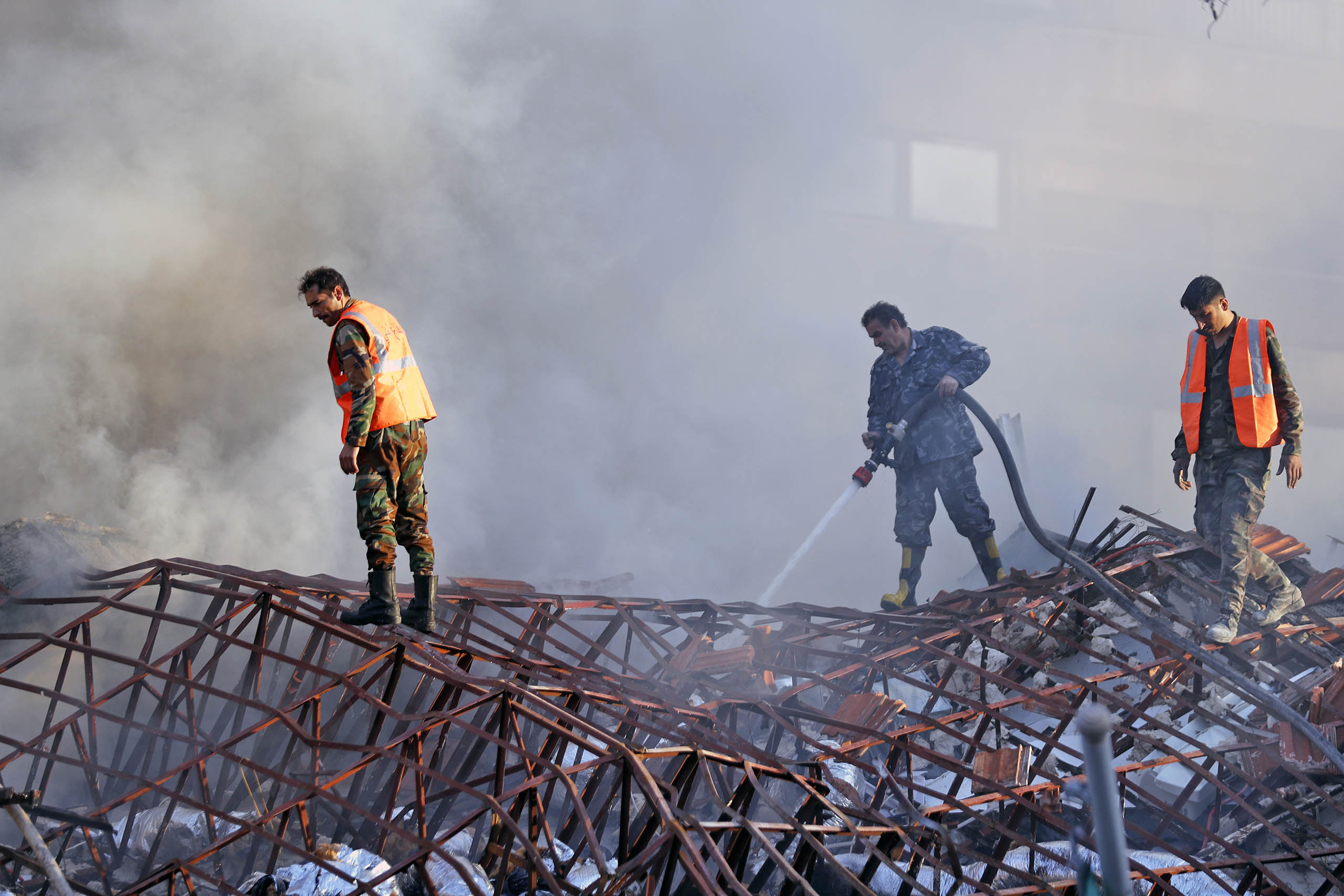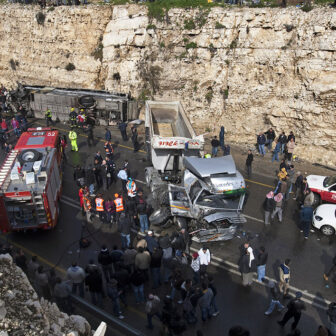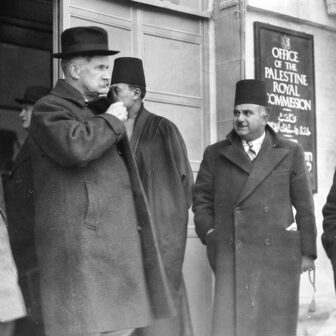Israel’s bloody attempts to eliminate Hamas in Gaza have already pushed a volatile Middle East to the brink of a wider conflagration. This week’s Israeli airstrike on the Iranian consulate in Damascus adds to the risk. Assassinated by US-supplied F-35 aircraft were brigadier-general Mohammad Reza Zahedi, a senior officer in the Islamic Revolutionary Guard, and several of his associates.
The raid took place at a critical moment in the Gaza war. The Biden administration has been seeking to dissuade Israel from launching a full-scale military assault on Rafah in the southern Gaza Strip, where a million or more displaced Palestinians are huddled.
Under international law, diplomatic missions like Iran’s Syrian consulate are regarded as sovereign territory. Leaving aside the seniority of the commanders killed in Damascus, the missile strike thus represents a direct assault on Iran’s interest in the region. Iran has vowed retaliation, but its leaders have not indicated what form this will take or given any indication of the extent to which they are prepared to risk a wider conflict.
In its responses so far to American and Israeli strikes — including the US assassination of Qasem Soleimani, another senior Revolutionary Guard leader, in January 2020 — Iran has been restrained. Leaders in Tehran clearly want to avoid a direct confrontation with the United States and Israel that would quickly become a regional conflict with devastating consequences — including for Iran itself, whose oil-dependent economy is brittle.
So, the question becomes twofold. How is Iran likely to assuage Zahedi’s slaying? And what are the risks of a further deterioration in regional security?
It is important to bear in mind that Zahedi, like Soleimani, was a commander of the Revolutionary Guard’s Quds force, which is deeply engaged in supporting Hezbollah, Iran’s Lebanese proxy. Indeed, the Quds commander is credited with overall responsibility for overseeing Hezbollah’s build-up of a missile capability aimed at targets in Israel.
For that reason alone, his death during an Israeli airstrike is not coincidental. Nor are the casualties of a number of other such Israeli strikes conducted over recent months against Iranian commanders in the region.
Late last year, for instance, Israeli forces killed Iranian general Sayyed Reza Mousavi in an airstrike in Damascus. Mousavi had been directly responsible for procuring missiles, rockets and drones for Hezbollah and Iranian militias in Syria and Iraq. Strikes like these highlight the fact that Iran prefers to use its proxies to conduct operations against the US and its interests in the region. The Houthi attacks on shipping in the Red Sea, for example, would not be possible without supplies of Iranian-manufactured drones and missiles. It has seriously disrupted container traffic in a waterway that previously carried around 30 per cent of global container trade.
But that disruption is happening at some distance from Gaza. What will be more concerning for Israel and the United States is the prospect of an escalation across the Israel–Lebanon frontier.
Until now, Hezbollah’s cross-border rocket and drone strikes have been sporadic, but the risks of an escalation are ever-present. A full-scale war would have destructive consequences for both countries, and for the region more generally. It would recall the devastating impact on Lebanon of the war it waged with Israel in 2006. Destruction of infrastructure was widespread, further setting back Lebanon’s fragile economic recovery after years of civil war.
The risks of such a conflict are real. With Iran’s assistance, Hezbollah has stockpiled thousands of missiles capable of striking targets deep inside Israel. Given such a threat to Israel’s security, any US administration would find it hard to remain indifferent.
President Joe Biden’s relocation of two aircraft battle groups into the eastern Mediterranean early in the Gaza war was aimed at forestalling a wider regional conflagration of this kind. But what has been noticeable in recent weeks has been an uptick across the Middle East of the proxy war between United States and Israel, on the one hand, and Iran and its allies — from Yemen itself to Iraq and Syria — on the other.
Early this year, for example, Israel killed Hamas’s deputy political head, Saleh al-Arouri, in a drone strike in the heart of Hezbollah’s seat of power in west Beirut. Al-Arouri was the Hamas leader regarded as closest to Iran. His assassination was designed to remind Hamas leaders across the region that they are not immune to Israel’s ability to exact revenge.
Israel has clearly decided that its security would be best served by region-wide pre-emptive actions. It is testing Iran’s tolerance for provocative strikes against its frontline military commanders and allied proxies while reminding Iran and other regional powers that its military reach is long and lethal.
At this stage, Iran seems unlikely to want a wider regional conflict, though the risks of such an outcome can’t be discounted. But Israel’s actions at this intensely dangerous moment, whether or not they are coordinated with Washington, are pushing Iran towards decisions that could spark a wider regional conflict. •




